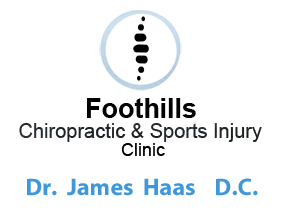What are Herniated discs?

The intervertebral discs are composed of water, proteoglycans and collagen. The discs have a center portion known as the nucleus pulposus. The nucleus has a high water content and acts to cushion compressive and torsional stresses. When we sit for a long time the nucleus changes shape and loses water content. Movement causes the water of the nucleus pulposus to move in and out removing wastes and allowing nutrients to be brought into the disc. These changes in disc hydration result in changes of the thickness of the intervertebral disc. We literally wake up in the morning taller than we did when we went to bed because of the changes in disc hydration. As we age, the discs degenerate and they hold less water and this makes them thinner. The outer wall of a intervertebral disc is called the annulus fibrosus. The annulus fibrosus maintains the shape of the disc. A disc bulge occurs when the annulus fibrosus tears. This is similar a tire or a basketball that gets a bulge. It doesn't pop but the shape changes. A disc herniation develops when the annulus fibrosus tears enough that some of the nucleus pulposus disc material leaks outside the outer wall or the disc.

If the disc material of a bulge or herniation bumps up against the nerve, the patient often develops a radiculopathy. If the disc herniation is of one off the lower lumbar discs, the patient often develops sciatica. However, many disc herniations never make contact with a nerve and patients are often asymptomatic. In some people, a disc herniation chemically irritate nerves and can cause a radiculopathy like sciatica. It is thought that in some people their immune system does not recognize the proteins of the extruded nucleus. This results in acute inflammation when disc herniation materials come in contact with immune cells. You body doesn't recognize the disc material leaking out of the disc and treats it as if it were a bacterial or or viral infection.
What Causes Herniated Discs?
There are many things that damage discs and increase your risk of developing a herniated disc.
1. The normal aging process. Our regular activities of daily living cause wear and tear to our discs. As we age our discs lose some of their water content and become more susceptible to damage. Almost everyone over the age of 40 has some disc tears and disc bulges. These changes can cause pain but the body has an amazing ability to adapt to this wear and tear and many people are pain free despite significant disc damage. Many people have no pain despite significant MRI proof of large disc bulges or herniations.
2. Genetics. Some people have a genetic predisposition to advanced degenerative disc disease. If a family member has a disc herniation, you have a greater risk of disc herniations.
3. Unhealthy Diet. Having a good diet provides the building blocks to make small repairs to your spine. Glucosamine sulfate and Chondroitin sulfate have been shown to provide the materials necessary to make the cartilage that lines your joints and makes up our disc. An anti-inflammatory diet helps prevent the inflammation that can cause tissue damage and lead to accelerated degenerative disc disease. The discs need hydration and oxygen. Drink plenty of water throughout the day and avoid caffeinated drinks to ensure good disc hydration. Caffeine acts as a diuretic and can cause dehydration by increasing urination.
4. Being Overweight. Extra weight especially around the waist area changes your posture and puts excessive stress on the spinal joints and discs.
5. Trauma. Automobile accidents, sports injuries, and work related repetitive stress can cause microscopic tears in the disc that increase in size over time and can eventually result in disc bulges or disc herniations. Whiplash injuries from automobile accidents can cause acute traumatic damage to the discs due to shear forces that tear the disc. Lifting heavy weights can damage the disc. When someone lifts weights in the gym, they increase the size and strength of their muscles. The lifting of heavy weights increases the density of bones but not the size of our joints. The weak link when lifting very heavy objects is the disc. Having strong bones and muscles can allow a body builder to lift very heavy weights but their discs can not be made stronger. The pounds per square inch on the disc that are required when doing heavy dead lifts and heavy squats can easily exceed the strength of the disc. This results in tears to the disc that often don't manifest as pain until many years after the injury to the disc.
6. Vibration. Prolonged vibration like in long distance driving or in some occupational situations damages intervertebral discs. The vibration confuses some of our proprioceptive nerves. When our sensory nerves are unable to tell the support muscles how to properly protect the spine, it results in more damage to the joints and discs.
7. Alcohol. Alcohol dehydrates the body including the discs. Dehydration makes it harder for the disc to regain their normal shape and function. Fibrocartilage in the disc needs to be well hydrated to provided proper support.
8. Smoking. Smoking causes our blood vessels to constrict and this means our discs and other body tissues get less oxygen. Less oxygen decreases our ability to heal causing degenerative changes all over our body. Smoking increases free radical formation and free radicals increase wear and tear as well as increase our risk of developing cancer. Smoking makes people more sensitive to all types of pain. Tobacco smoking effects the nervous system resulting in and increased perception and sensitivity to pain. Smokers are 2.7 times more likely to have back pain than non-smokers. Smoking interferes with the nervous system and results in smokers needing to take higher doses of pain control medications than non-smokers to get relief.
